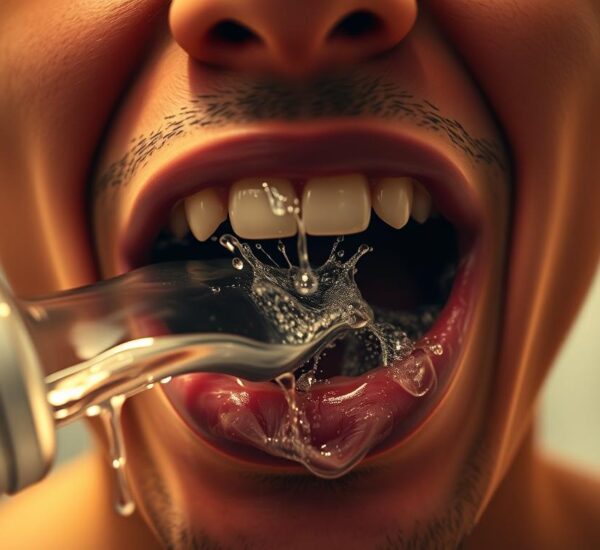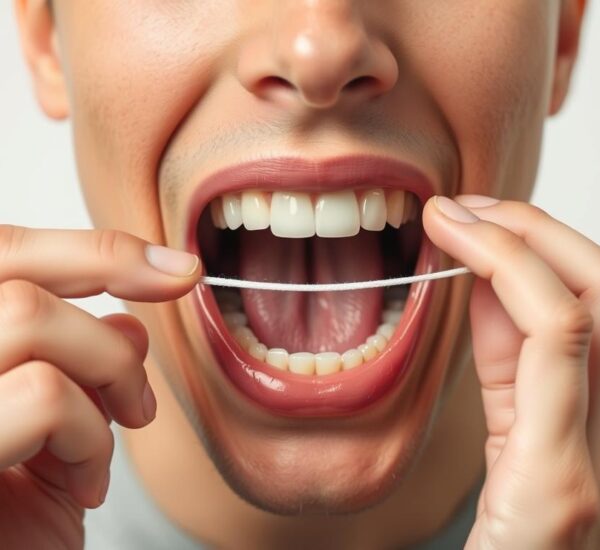Keeping our smile healthy is key to our overall well-being. We can lower our risk of dental decay by following good oral hygiene practices and making healthy choices.
Dental decay is a big problem worldwide. But, we can stop it with regular dental check-ups and a consistent oral care routine. Simple steps can keep our smile healthy and beautiful for years.
We’ll look at the important tips and info to keep our teeth strong and free from decay. By adopting these habits, we can keep our dental care on track and our smile bright.
Key Takeaways
- Practice proper oral hygiene to prevent dental decay.
- Regular dental visits are key for a healthy smile.
- Healthy lifestyle choices help avoid oral health problems.
- A consistent oral care routine stops dental decay.
- Simple steps ensure a healthy and beautiful smile.
Understanding Cavities: What You Need to Know
Learning about cavities is the first step to preventing them and keeping your teeth healthy. Cavities, or tooth decay, are a big problem for many. Knowing what cavities are, how they form, and their signs helps us keep our smiles bright.
What Are Cavities?
Cavities are damaged areas in the teeth that can turn into small holes. They happen when bacteria in your mouth feed on sugars, making acids that weaken the enamel. This can happen over time, often without you noticing at first. Eating sugary foods and drinks and not brushing well can make it worse.
How Cavities Develop
Cavities form when bacteria in the mouth feed on sugars and make acids that weaken the enamel. This can happen slowly, often without you noticing at first. Eating sugary foods and drinks and not brushing well makes it happen faster.
Common Symptoms of Cavities
Common signs include tooth sensitivity, pain when eating or drinking, and visible holes or discoloration on the teeth. If you notice any of these, see your dentist right away to stop further damage.
Spotting these signs early is key to stopping cavities. By catching them early, you can prevent them from getting worse.
The Importance of Cavity Prevention
Keeping our teeth healthy starts with preventing cavities. Understanding why cavities are bad helps us take steps to keep our teeth strong for a long time.
Why Prevention Matters
Stopping cavities is key because it avoids the need for fillings and crowns. Some people are more likely to get cavities because of their genes, saliva, and mouth bacteria. Regular dental check-ups and dental sealants can greatly lower cavity risk.
Preventing cavities keeps our mouth and body healthy. Untreated cavities can cause bigger health problems. So, preventing cavities is a big part of staying healthy.
- Reduces the need for costly dental procedures
- Helps maintain overall health and well-being
- Prevents possible complications from untreated cavities
The Long-Term Benefits of Healthy Teeth
Healthy teeth bring many long-term benefits, like a confident smile and eating without pain. By focusing on preventing cavities, we keep our teeth strong and useful for life.
Some main benefits of healthy teeth are:
- Better overall health
- Enhanced self-confidence
- Improved quality of life
By going for regular dental check-ups and using dental sealants, we can enjoy these benefits for a long time. It’s important to stick to our oral health routine for a healthy, cavity-free smile.
Daily Habits for Cavity Prevention
To keep cavities away, we need to make daily habits a part of our routine. These habits help us avoid cavities and keep our smile bright and healthy.
Brushing Techniques That Work
Brushing our teeth is the simplest way to fight cavities. Use a soft-bristled toothbrush and brush for at least two minutes, twice a day. This ensures all tooth surfaces are clean.
It’s also key to brush along the gum line and the molars’ surface.
Effective brushing techniques include:
- Place the toothbrush against the gum line at a 45-degree angle.
- Gently move the brush in small circular motions.
- Brush all tooth surfaces, including the front, back, and top.

Flossing: An Essential Routine
Flossing is a vital part of our daily oral care. It removes plaque and food particles stuck between teeth, where a toothbrush can’t reach.
Proper flossing techniques involve:
- Use a long piece of floss and wrap it around your middle fingers.
- Guide the floss between teeth with a zig-zag motion.
- Curve the floss around each tooth in a “C” shape.
Choosing the Right Toothpaste
With many toothpaste options, picking the right one can be tough. For cavity prevention, look for toothpaste with fluoride. Fluoride strengthens tooth enamel.
| Toothpaste Type | Key Ingredients | Benefits |
|---|---|---|
| Fluoride Toothpaste | Fluoride, mild abrasives | Strengthens tooth enamel, prevents cavities |
| Whitening Toothpaste | Mild abrasives, hydrogen peroxide | Removes stains, brightens teeth |
| Tartar Control Toothpaste | Pyrophosphates, fluoride | Prevents tartar buildup, reduces gingivitis |
The Role of Diet in Cavity Prevention
What we eat affects our teeth a lot. Eating the right foods can keep our teeth strong. But, not eating enough of these foods can cause cavities.
Foods That Help Fight Cavities
Some foods are great for our teeth. Crunchy fruits and veggies like apples and carrots clean our teeth. Dairy products, like cheese and yogurt, are full of calcium, which is key for strong teeth.
Calcium-rich foods help make our teeth stronger against decay. Foods high in fiber also help by making more saliva. This saliva helps neutralize acids and strengthen our teeth.
Sugar’s Impact on Dental Health
Sugar is a big problem for our teeth. Sugary foods and drinks feed the bacteria in our mouth, making acid that harms our enamel. It’s important to cut down on sugary snacks and drinks to avoid cavities.
Reducing sugar intake is a simple way to protect our teeth. Choosing sugar-free options and watching out for hidden sugars in processed foods can greatly improve our oral health.
Staying Hydrated for Healthy Teeth
Drinking lots of water is key for our teeth. Water helps remove food and bacteria, lowering cavity risk. It also keeps our mouth moist, preventing dry mouth and its risk of tooth decay.
Staying hydrated is a simple habit that greatly benefits our dental health. We should drink water often, after meals and snacks.
Dental Visits: A Key Component of Prevention
One of the best ways to stop cavities is by getting regular dental check-ups. These visits are key for keeping your mouth healthy and avoiding big problems.
Going to the dentist regularly can spot issues early. This means you won’t need expensive treatments later. Your dentist can also give you tips on how to brush and floss better.
How Often Should You See Your Dentist?
How often you should see a dentist depends on a few things. These include your oral health, age, and risk for dental disease. Usually, seeing a dentist every six months is a good rule. But, your dentist might tell you to come more or less often based on your needs.
What to Expect During a Check-Up
At a dental check-up, your dentist will look at your teeth, gums, and mouth. They’ll check for decay, disease, or other problems. This might include a visual check and X-rays to see hidden issues.
The Role of Professional Cleanings
Professional cleanings are a big part of dental check-ups. They remove plaque and tartar, even if you brush and floss well. This helps prevent cavities and gum disease, keeping your teeth and gums healthy.
By combining regular dental visits with good home care, you can lower your risk of cavities and dental problems. Talk to your dentist about how often you should come in for a check-up to get the best care.
Fluoride: A Powerful Ally Against Cavities
Fluoride is a key part of keeping our teeth healthy. It’s a must-have in our daily oral care. By using fluoride, we make our teeth stronger against decay.
Fluoride makes our teeth more resistant to acid attacks. It helps reverse early stages of tooth decay and prevent cavities from forming.
How Fluoride Works
Fluoride gets into our teeth, making them stronger. This process, called remineralization, fixes early tooth damage.
Fluoride Treatments and Dental Products
There are many ways to get fluoride. You can use fluoride toothpaste, mouthwashes, or get professional fluoride treatments at the dentist. Using these products daily adds extra protection against cavities.

It’s important to use fluoride products as directed to avoid too much fluoride. Our dentist can help choose the best products and treatments for us.
By using fluoride and practicing good oral hygiene, we can keep our teeth healthy for a long time.
Sealants: Extra Protection for Your Teeth
Think about adding dental sealants to your oral care routine. They offer extra protection against cavities. This is a great way to keep your teeth safe.
Dental sealants are thin coatings for the chewing surfaces of molars. They keep plaque and food particles away. This is great for people who often get cavities.
What Are Sealants?
Dental sealants are made from a tooth-colored or clear plastic. They are painted onto the teeth. This creates a smooth surface that’s easy to clean and keeps bacteria away.
Getting dental sealants is easy and painless. First, the tooth is cleaned. Then, a special gel is applied. After that, the sealant material is painted on.
Who Should Get Dental Sealants?
Sealants are great for kids and teens because they protect growing teeth. But adults can also benefit, if they’ve had cavities or teeth with deep grooves.
The table below shows who might need dental sealants and why.
| Group | Benefits of Sealants | Considerations |
|---|---|---|
| Children and Teenagers | Protects developing teeth from decay, easy to apply | Regular check-ups to ensure sealant integrity |
| Adults | Additional protection for teeth with deep grooves or history of cavities | Assess the condition of existing fillings or restorations |
Learning about dental sealants can help you make better choices for your teeth. They are a good option for parents and adults alike. Sealants are a strong ally in the battle against cavities.
Special Considerations for Kids and Teens
We want our kids to have healthy, happy smiles. Teaching them good dental habits early is key. It’s not just about a pretty smile; it’s about their health.
Teaching kids about dental care can be tough. But, it’s vital for their health. We should make dental hygiene fun and engaging for them.
Teaching Good Dental Habits Early
It’s important to teach our kids good dental habits early. This includes brushing, flossing, and regular dentist visits.
Choosing Kid-Friendly Dental Products
Finding the right dental products for kids can be hard. We need to pick products that are both effective and safe for them. Toothpaste with fluoride is key for cavity prevention.
| Dental Product | Age Group | Key Features |
|---|---|---|
| Toothpaste | 2-5 years | Fluoride, child-friendly flavor |
| Mouthwash | 6-12 years | Antibacterial, gentle on teeth and gums |
The Importance of Regular Checkups for Children
Regular dental checkups are vital for kids’ oral health. These visits help prevent cavities and catch any issues early.
Natural Remedies and Cavity Prevention
Adding natural remedies to our daily routine can boost our fight against cavities. Nature offers many ways to keep our mouths healthy and prevent cavities.
Herbal Solutions for Dental Health
Some herbs are great for our teeth. Neem and turmeric fight off bad bacteria in our mouths. This helps prevent cavities.
These herbs can be used in mouthwashes or toothpastes. They make our oral hygiene routine better.
| Herb | Benefit | Usage |
|---|---|---|
| Neem | Antibacterial properties | Mouthwash, toothpaste |
| Turmeric | Anti-inflammatory properties | Toothpaste, oral gel |
Oil Pulling: Does It Help?
Oil pulling is an old method. It involves swishing oil in your mouth to fight bacteria. Some say it can stop cavities by reducing bacteria in the mouth.
Even though oil pulling’s benefits are being studied, it’s good to add it to your oral care routine. Remember to brush and floss regularly too.
Staying Informed: Resources for Better Oral Health
Knowing what’s new in dental care is key to good oral health. Keeping up with the latest in dental care helps us make smart choices for our teeth and gums. This knowledge helps us develop habits that keep our smile healthy and bright.
Recommended Websites and Associations
Many reliable websites and groups share important info on dental care. The American Dental Association (ADA) is a top source for oral health tips, like how to prevent cavities. Their site is full of useful info for everyone.
Other sites like Oral Health America and the National Institute of Dental and Craniofacial Research also offer great insights. They share the latest on keeping your mouth healthy and the newest dental research.
Books and Guides on Dental Care
If you like to dive deep into topics, books and guides on dental care are great. They come from top dental experts and groups, packed with advice on oral hygiene. These resources help us understand dental health better and give us practical tips for better oral care.
## FAQ
### Q: What are the most effective ways to prevent cavities?
A: To prevent cavities, brush your teeth well, floss, and use fluoride toothpaste. Regular dental visits and a healthy diet are also key.
### Q: How often should we visit our dentist for a check-up?
A: Visit your dentist twice a year for a check-up. This helps prevent cavities and keeps your teeth healthy. Your dentist will clean your teeth during these visits.
### Q: What is the role of fluoride in cavity prevention?
A: Fluoride strengthens tooth enamel and prevents cavities. It makes teeth more resistant to acid. You can get fluoride from treatments, toothpaste, and mouthwash.
### Q: Are dental sealants effective in preventing cavities?
A: Yes, dental sealants protect molars from plaque and food. They are great for kids or anyone prone to cavities.
### Q: How can we teach good dental habits to our kids?
A: Teach kids to brush, floss, and visit the dentist regularly. Use kid-friendly dental products to help.
### Q: Can natural remedies help prevent cavities?
A: Yes, natural remedies like herbal solutions and oil pulling can reduce bacteria. They promote good oral hygiene.
### Q: What foods can help fight cavities?
A: Eat foods rich in calcium like cheese and yogurt. Crunchy fruits and veggies also keep teeth strong.
### Q: How does sugar impact our dental health?
A: Sugar can cause cavities and tooth decay. Limit sugar and practice good oral hygiene to fight its effects.
### Q: Why is staying hydrated important for our oral health?
A: Drinking water helps wash away food and bacteria. It keeps your teeth and mouth healthy.
### Q: Where can we find reliable resources for oral health information?
A: Find reliable oral health info on recommended websites, through associations, and in dental care books and guides.



